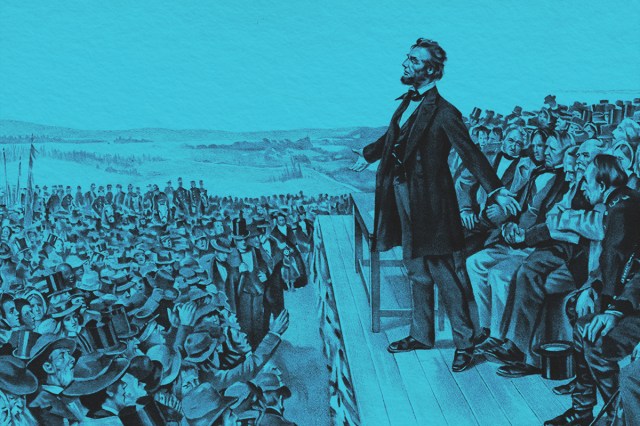
One of the most recognizable spoken lines in American history begins, “Four score and seven years ago…” These six words opened Abraham Lincoln’s Gettysburg Address, delivered November 19, 1863. In this context, Lincoln used “score” as a synonym for “20,” turning the phrase into an eloquent way to say “87 years ago.” But to our modern ears, there’s no clear reason why “score” means “20,” so let’s examine the etymology.
To better understand this meaning, we need to look to the act of scoring. It wasn’t used originally in the context of determining the winner of a competition. “Score” is derived from the Old Norse skor, meaning “a mark” or “a notch.” It’s believed that some early sheep herders would make physical notches in their wooden sticks while counting large flocks. Rather than make a notch for each individual sheep — which would be too much work and take up too much space — they’d make one skor for each group of 20. The word came into Old English as scoru, meaning “20.”
But why 20 instead of 10? While many modern peoples count by 10s, ancient Celtic cultures used a vigesimal counting system, in which they counted by 20s. This helped further solidify the connection between the number 20 and the word “score.”
In time, the usage of “score” expanded far beyond counting sheep. Orators and writers would often pair “score” with a cardinal number to denote larger periods of time (“threescore” for 60 years, “fourscore” for 80 years, etc.). While Lincoln’s speech is likely the most well-known example of this, he certainly wasn’t the only speaker to use “score” in this context.

















